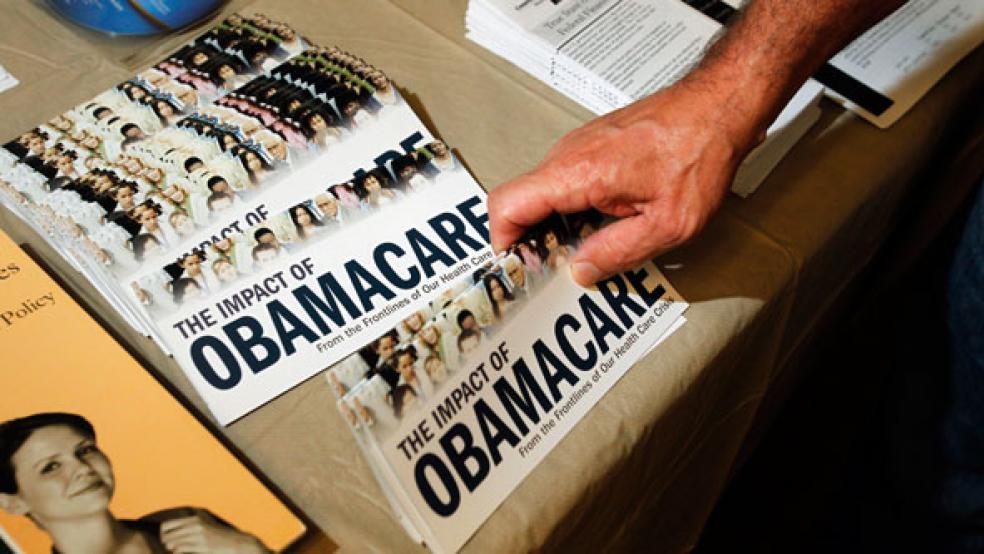In a ruling that was largely lost in the press of events over the July 4 holiday weekend, a federal appeals court rebuked the Department of Health and Human Services, saying that it “colored outside the lines of its authority” in its expansive interpretation of an element of the Affordable Care Act which effectively eliminated a type of health insurance program that some people considered an alternative to more expensive plans required under the law.
The ACA requires that most Americans be able to prove that they are covered by a health insurance policy that meets at least a set of minimum standards, and provides subsidies to help individuals who cannot afford those plans on their own. People who fail to acquire insurance are subject to a financial penalty -- basically a fine.
Related: Obamacare Insurers Are Looking for a Taxpayer Bailout
After the law took effect, some individuals decided that it was more cost-effective to take out a non-conforming “fixed indemnity” policy, which pays a set amount for specific medical events -- such as a per-night payment for hospital stays or a per-visit payment for doctor’s appointment -- and to simply pay the penalty.
The ACA gave HHS the authority to set minimum coverage requirements for numerous health insurance products under the Public Health Service Act, but fixed indemnity policies were among a group of “excepted” benefits. In 2014, however, the agency announced that it had decided to amend the criteria that fixed indemnity policies had to meet in order to retain that excepted status.
This basically made fixed indemnity policies impossible to sell, a three-judge panel of the Federal Appeals Court for the District of Columbia Circuit decided in a ruling that upheld a lower court’s opinion in the case Central United Life Insurance Co. v. Burwell.
“Now, those who had previously purchased these plans as a substitute for minimum essential coverage would have to find a fixed indemnity plan that satisfies the PHSA’s coverage requirements for non-excepted benefits. The very nature of fixed indemnity insurance, however, renders such plans incapable of satisfying those requirements, so this new rule effectively eliminated standalone fixed indemnity plans altogether.”
Related: White House Is Spending Millions to Combat Obamacare Rate Hikes
And that, the court found, was not something HHS had the authority to do.
While the court allowed that HHS is entitled to amend its implementation of rules that Congress gives it permission to write, the judges found that changing the rules for what is and is not an “excepted benefit” under the PHSA amounts to an attempt to rewrite the law itself.
“Disagreeing with Congress’s expressly codified policy choices isn’t a luxury administrative agencies enjoy,” the judges found. They added, “Nothing in the PHSA suggests Congress left any leeway for HHS to tack on additional criteria.”
Jonathan H. Adler, a law professor at Case Western Reserve University who also writes for The Washington Post, explained the ruling this way:
“Federal agencies do not have the roving authority to fix statutory schemes that don’t produce results the agencies (or even the statute’s authors) like. Such authority, if it exists, must have been delegated by Congress.
“If it is a problem consumers are electing to purchase fixed indemnity policies and pay the individual mandate penalty, in lieu of qualifying health insurance, then it is a problem Congress must fix, either by amending the statute or delegating the requisite authority to the applicable agency. In the meantime, HHS can’t manufacture statutory ambiguity to justify its actions.”





